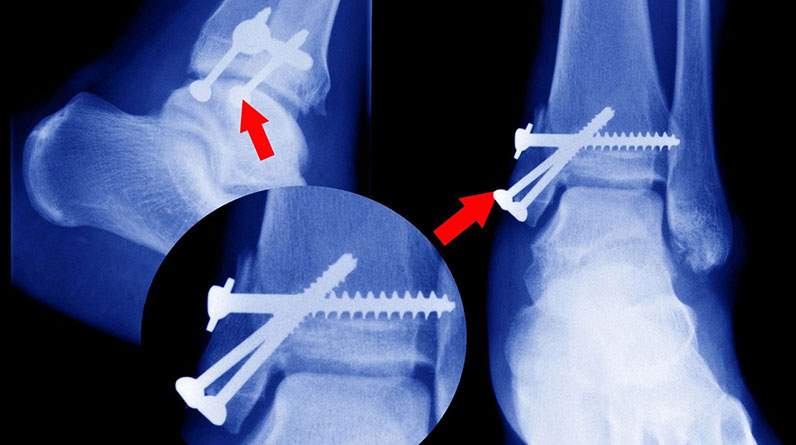
Calcium, Vitamin D, And Bone Density
Bone health and density are important aspects of overall well-being, particularly as we age. Our skeletal system supports our body’s structure, protects important organs, and enables mobility.
Maintaining strong and healthy bones is essential to prevent osteoporosis and fractures. Two of the nutrients that are specialized in this process are calcium and vitamin D. Calcium is a primary building block of bone tissue, while vitamin D facilitates the absorption and utilization of calcium in the body.
Together, they form a powerful duo that ensures our bones remain robust and resilient. In what follows, we’ll discuss the roles of calcium and vitamin D in bone health. We will also discuss how they contribute to maintaining optimal bone density and how we can incorporate them into our daily lives.
The Role of Calcium & Vitamin D
Calcium is the most abundant mineral in the human body, with about 99% of it stored in our bones and teeth. This essential nutrient serves as a primary structural component of bones, providing them with the strength and rigidity needed to support our body.
Calcium is not only particularly important for bone health but also is an integral part of muscle function, nerve transmission, and blood clotting.
Our bones undergo constant remodeling, a process where old bone tissue is broken down and replaced with new tissue. Adequate calcium intake is essential to ensure that this process runs smoothly, maintaining bone density and preventing the bones from becoming weak and brittle.
To maintain adequate calcium levels, it is important to include calcium-rich foods in our diet. Some excellent sources of calcium include:
- Dairy Products: Milk, cheese, and yogurt are well-known sources of calcium.
- Leafy Green Vegetables: Spinach, kale, and collard greens provide a good amount of calcium.
- Fortified Foods: Many cereals, juices, and plant-based milk alternatives are fortified with calcium.
- Fish: Sardines and salmon, especially when consumed with their bones, are rich in calcium.
- Nuts and Seeds: Almonds, chia seeds, and sesame seeds also contribute to calcium intake.
Vitamin D functions in bone health by enhancing the body’s ability to absorb calcium from the diet. Without adequate vitamin D, the efficiency of calcium absorption decreases, regardless of dietary intake, leading to potential deficiencies that can affect bone density.
Vitamin D also has a role in bone remodeling. It helps regulate calcium and phosphate balance in the body, which is necessary for the formation and maintenance of healthy bone tissue.
Vitamin D can be obtained from various sources, including:
- Sunlight: The body can synthesize vitamin D when the skin is exposed to sunlight. Just 10-30 minutes of sun exposure several times a week can help maintain adequate levels, although this can vary based on geographic location, skin type, and season.
- Food: Fatty fish such as salmon, mackerel, and tuna are excellent sources of vitamin D. Other sources include beef liver, cheese, and egg yolks.
- Fortified Foods: Many foods, such as milk, orange juice, and cereals, are fortified with vitamin D.
- Supplements: Vitamin D supplements are available and can be particularly useful for individuals who have limited sun exposure or dietary intake.
The Synergy of Calcium and Vitamin D
Calcium and vitamin D work synergistically to maintain bone health. Without sufficient vitamin D, the body cannot effectively absorb and utilize calcium, regardless of the amount consumed.
Conversely, even with ample vitamin D, insufficient calcium intake can compromise bone strength. Therefore, it is important to ensure adequate intake of both nutrients to support optimal bone health and prevent bone-related diseases.
What Affects Bone Density
Age and Gender
Bone density peaks in early adulthood and naturally declines with age. As we grow older, the balance between bone resorption (breakdown) and bone formation shifts, leading to a gradual loss of bone mass.
This process accelerates in women after menopause due to a decrease in estrogen levels, a hormone that is vastly important for bone maintenance. Women are at a higher risk of developing osteoporosis compared to men. This increased risk is due to several factors, including lower peak bone mass, hormonal changes during menopause, and generally smaller and thinner bones.
Men also experience bone loss with age but typically start with higher bone density, offering some protection against osteoporosis.
Lifestyle Factors
Regular weight-bearing exercises, such as walking, running, and resistance training, stimulate bone formation and increase bone density. Sedentary lifestyles, on the other hand, can lead to bone loss and weakened muscles, which support and protect bones.
Smoking has been linked to decreased bone density and increased fracture risk. Excessive alcohol consumption interferes with the balance of calcium and can lead to bone loss. Limiting alcohol intake and avoiding smoking are some of the best ways to maintain bone health.
Nutritional Factors
As discussed, calcium is the primary building block of bones, and vitamin D is essential for calcium absorption and utilization. Ensuring adequate intake of these nutrients through diet, fortified foods, or supplements will truly help to maintain bone health.
Adequate protein intake is necessary for bone health, as it forms the framework of bones and helps in the repair and maintenance of bone tissue. However, extremely high protein intake can lead to calcium loss, so balance is key.
Finally, magnesium, phosphorus, and vitamin K are included as special components in bone health. A balanced diet rich in fruits, vegetables, whole grains, and lean proteins will help provide these essential nutrients.
Maintaining bone health is a goal that improves overall well-being, especially as we age. Regular exercise, particularly weight-bearing and muscle-strengthening activities, stimulates bone formation and improves bone density.
Coupled with a balanced diet rich in calcium, vitamin D, and other essential nutrients, these lifestyle choices form the foundation of strong and healthy bones. Avoiding smoking and limiting alcohol intake further supports bone health by preventing bone loss and reducing the risk of fractures.
Regular bone density testing, especially for postmenopausal women and older adults, is essential for early detection of bone loss and timely intervention. When necessary, medications prescribed by healthcare professionals can help prevent further bone deterioration and reduce the risk of fractures.
By adopting these prevention and management strategies, individuals can take proactive steps to ensure robust bone health and maintain an active, healthy lifestyle throughout their lives.


